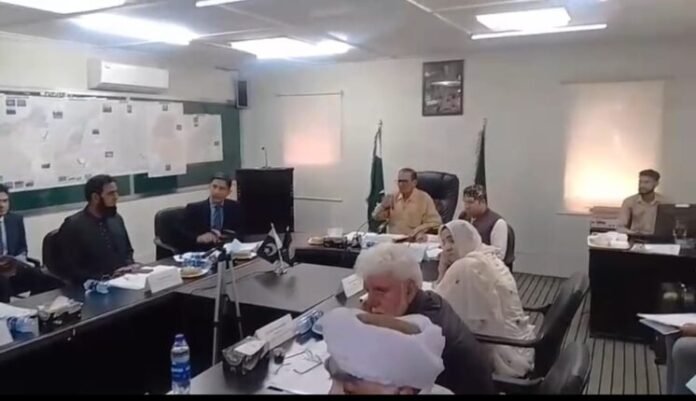KARACHI: Pakistan’s mango export sector is facing a serious setback this season, as exporters have lodged strong protests against the alleged mismanagement and flawed policies of the National Agri Trade and Food Safety Authority (NAFSA). The issue was brought to light during a recent meeting of the Senate Standing Committee on National Food Security.
During the session, exporters raised alarming concerns about fraudulent practices, operational inefficiencies, and preferential treatment being extended to select companies — warning that such factors could severely jeopardize the country’s mango export targets.
One of the key revelations involved a treatment facility in Karachi operating on a mere 2,000-square-yard plot, which allegedly claimed to process 17 containers daily through hot water treatment — a process mandatory for phytosanitary certification. Exporters argued that such volumes were logistically impossible and alleged that fake phytosanitary certificates were being issued, risking the credibility of Pakistani exports.
They further complained that despite these impractical conditions, they were being forced to comply with NAFSA’s unrealistic requirements. Exporters also accused the authority of failing to implement its own standard operating procedures (SOPs), thus unnecessarily complicating the export process.
Specific criticism was directed at Dr. Syed Bilal Hasan, Joint Secretary at the Ministry of National Food Security, who was accused of selectively favoring certain treatment plants in Karachi by allegedly granting them undue facilities and support.
In response to the complaints, Committee Chairman Senator Masroor Ahsan took immediate notice and announced the formation of a three-member inquiry committee to thoroughly investigate the matter. The committee will examine the allegations and submit its findings and recommendations without delay.
Senator Ahsan also expressed deep dissatisfaction with the performance of relevant departments. He questioned why inspectors allegedly involved in corrupt practices at treatment facilities were being protected rather than removed. He further criticized the appointment of Tahir Abbas, a non-technical customs officer, as Director General of NAFSA (formerly the Department of Plant Protection — DPP), stating that such decisions were undermining the department’s effectiveness.
The committee was further surprised to learn that an officer, Mr. Basit, currently holds three key positions within NAFSA despite being under investigation for corruption. The chairman asked the DG to explain why such a sensitive concentration of power was allowed, and why no action had been taken despite serious allegations and shared evidence.
Senator Ahsan also grilled the Director General over the authority’s inaction regarding staff irregularities and SOP violations, particularly in the treatment of mangoes and other agricultural items, despite formal complaints and evidence submitted by the committee.
He announced that the newly formed three-member committee would conduct a comprehensive probe and hold those found guilty accountable. He added that similar complaints had already been forwarded to the relevant minister and federal secretary.
Committee members expressed serious concern over allegations that NAFSA inspectors were clearing untreated mango shipments after allegedly receiving bribes from certain treatment companies. The chairman was informed that Ms. Shazia Mateen, the owner of a hot water treatment (HWT) facility, was allegedly being facilitated by government officials, enabling her to bypass official SOPs.
The committee also discussed broader issues affecting agricultural exports, including rice, wheat, cotton, kinnow (mandarins), and other fruits. Concerns were raised over the clearance of imported agricultural consignments, particularly cotton, without mandatory fumigation — even as Pakistani exports face strict scrutiny in international markets.
“Why do we stay silent and accept everything with our pockets full, even when foreign agencies raise valid objections about our non-compliance?” asked Senator Ahsan. “At home, we continue to ignore international protocols without accountability.”
He further noted that while many countries have adopted advanced pest control technologies for crops like rice and maize, Pakistan still lags behind due to the absence of meaningful reforms.
The meeting concluded with a unanimous decision to authorize the inquiry panel to thoroughly investigate all complaints and recommend urgent corrective measures to safeguard and promote Pakistan’s agricultural export sector.




